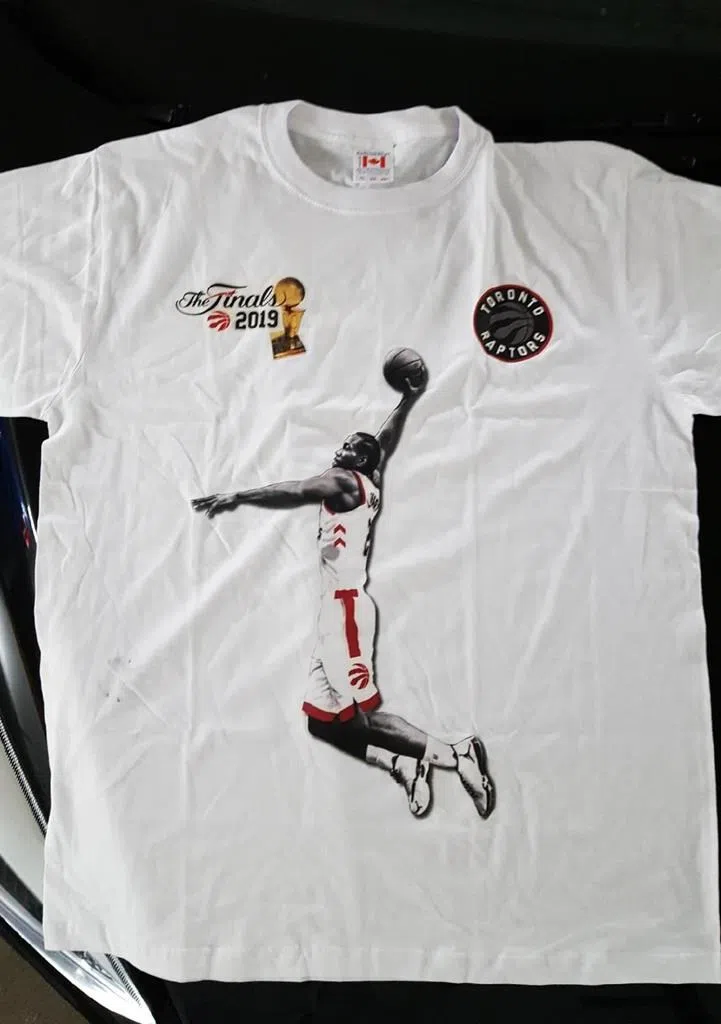
Fake Raptors merch cat-and-mouse game plays out during NBA Finals
TORONTO — Hours before the Toronto Raptors take to the court during their historic playoffs run, a cat-and-mouse game unfolds outside the team’s arena.
On one side, a group of slippery hawkers sell illicit team merchandise in an effort to seek large profits from excited fans. On the other, a crew of NBA executives, private investigators, city bylaw officers and police try to enforce the league’s property rights.
It’s the first time this type of anti-counterfeit operation has played out for the NBA on such a scale in Canada, given the Raptors’ unprecedented ascent to the Finals where they are tied with the Golden State Warriors at one game apiece.
“The finals generates so much interest and the Raptors story is so significant being the first Canadian team that what happens is it creates a tremendous spike with certain types of illicit vendors,” said Anil George, an intellectual property lawyer with the NBA based in New York City. “They basically do a bait and switch.”
